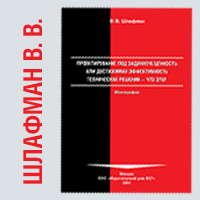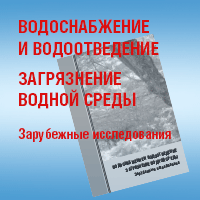№11|2011
МГСУ - 90 лет
bbk 000000
UDC 628.35:62-278
Solving the problem of waste discharge of stand-alone industrial facilities
Summary
Advanced technologies of wastewater non-biological treatment with reverse osmosis are presented. Formation of concentrate in the process of reverse osmosis is a most difficult problem. The suggested technology provides for the reduction of concentrate flow to less than 1% of the total waste flow subjected to treatment (corresponding to the activated sludge flow removed to sludge beds at biological treatment facilities). Since the concentrate flow depends on the salt concentration in wastewater to be treated it is recommended to supply water with low salt concentration to the water supply system of the facilities. The comprehensive approach to the problem of reducing the discharge of industrial wastes in the environment specifies the use of membrane units for water conditioning (in boiler-houses), drinking water treatment, wastewater treatment and reuse as process water (in irrigation, in heating systems).
Key words
wastewater , concentrate , reverse osmosis , salt-content , water conservation , membrane unit
SPISOK LITERATURY
- Pervov A. G., Andrianov A. P., El'piner L. I., Kocharian A. G. Primenenie obratnogo osmosa kak universal'nogo metoda ochistki stochnykh vod – kliuch k povtornomu ispol'zovaniiu vody i umen'sheniiu zagriazneniia poverkhnostnykh vod // Vodosnabzhenie i kanalizatsiia. 2010. № 5–6.
- Pervov A. G., Smirnov D. G., Motovilova N. B. Membrannye tekhnologii dlia doochistki stochnykh vod i ikh povtornogo ispol'zovaniia // Vodosnabzhenie i san. tekhnika. 2009. № 7.
- Abdel-Javad M., Ebrahim S. Advanced technologies for municipal wastewater purification: tecqnical and economic assessment // Desalination. 1999. V. 124.
- Del Pino M. P. Wastewater reuse through dual-membrane processes: opportunities for sustainable water resources // Desalination. 1999. V. 124.







